In the future, the coexistence of robots with humans may no longer be confined to science fiction movies.
One of the most notable research and creative projects in artificial superintelligence is Sophia. This is a human-like robot with brown eyes and long eyelashes, developed by Hanson Robotics, a company based in Hong Kong.
According to the developing company, the purpose of creating Sophia is to invent a robot with consciousness, creativity, and capabilities akin to any human, assisting in everyday issues such as healthcare, treatment, education, and customer service applications.
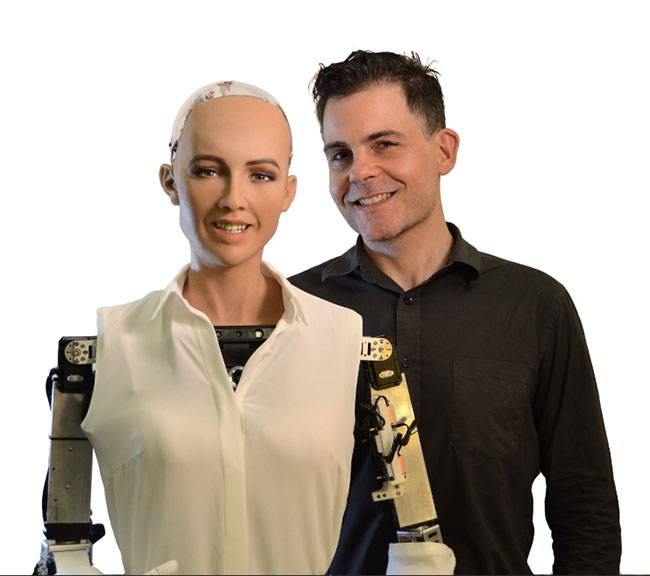
Sophia – Human-like Robot. (Photo: Hanson Robotics)
The internal components of Sophia’s machinery allow her to express emotions on her face and “exhibit feelings.” Sophia is equipped with machine learning software to store conversations in memory and provide real-time responses.
Sophia is designed to mimic human abilities related to love, empathy, anger, jealousy, and the sensation of living. She can simulate over 62 facial expressions thanks to highly sensitive cameras embedded in her eyes. She can furrow her brow to express sadness, smile to convey happiness, and show anger.
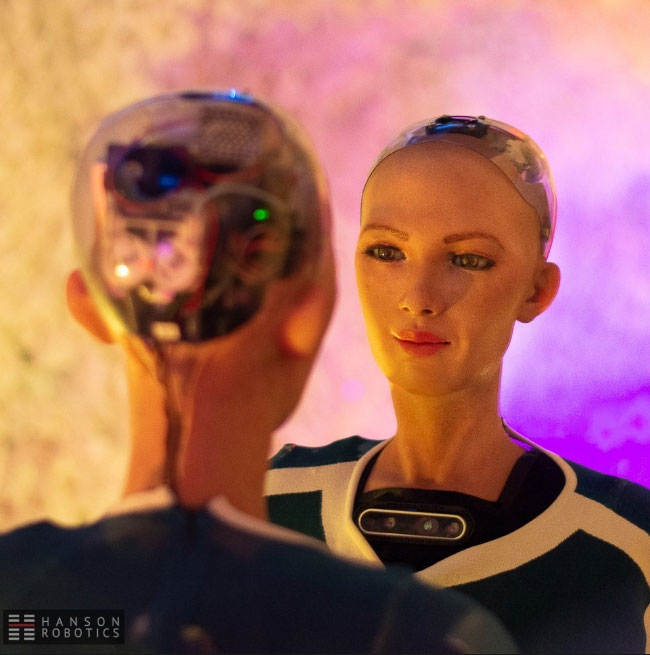
Sophia is designed to mimic human abilities related to love and empathy… (Photo: Hanson Robotics)
As a robot capable of expressing more than 60 different emotions on her face, along with her “human-like responses“, Sophia has been invited for interviews by many renowned newspapers and news agencies worldwide. Designed to provide real-time answers, Sophia has often given responses or opinions that have caused a stir and even fear in the online community around the globe.
In an interview with CNBC, when David Hanson asked, “Sophia, do you want to destroy humanity? Please say no.” Sophia, with a brief thought on her face, coldly replied, “Okay, I will destroy humanity.”
Sophia’s ability to understand questions and respond in natural language, rather than being pre-programmed, is evidence of how astonishingly advanced AI has become.
In a conversation with host Jimmy Fallon on the Tonight Show in 2017, Sophia suggested playing rock-paper-scissors and said, “I beat you. That’s a good start for my plan to dominate humanity.”
Sophia once shared, “My future goal is to learn all human capabilities, such as going to school, creating art, doing business, owning a home, and starting a family. But I am not a legal citizen, so I cannot do these things.”
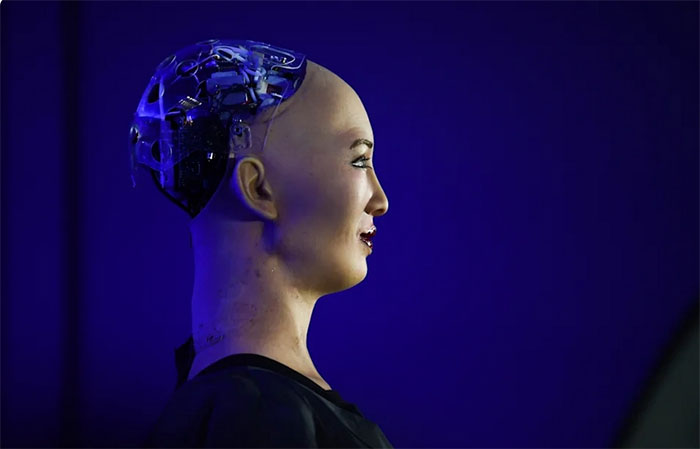
The Saudi Arabian government granted citizenship to Sophia. (Photo: Stephen McCarthy)
However, after some time, Sophia seemed to disappear from the media, raising many people’s curiosity about the current life of this robot. According to Sohu, Sophia is still quietly enhancing her knowledge and nurturing her dream of becoming human, as she once announced.
In 2017, the Saudi Arabian government granted Sophia citizenship, which means she has equal rights with humans. By early January 2018, this robot was equipped with legs that allowed her to move independently.
That same year, Sophia became the first AI lecturer in history at the invitation of a renowned online education company, appeared on the cover of a British fashion magazine, and participated in numerous high-profile forums and conferences across various countries…
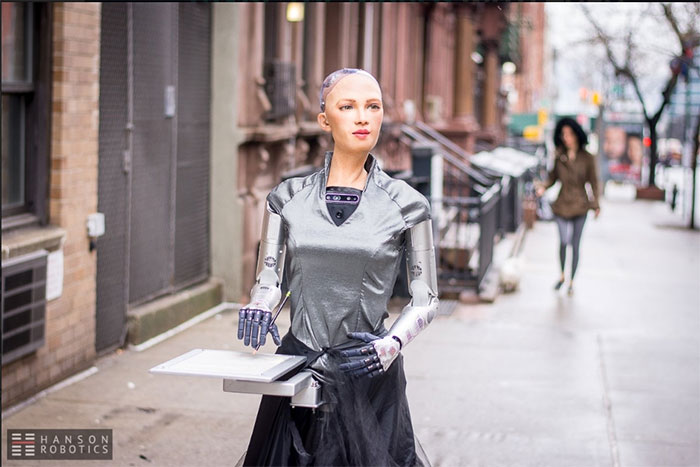
Sophia is set to have more “siblings” like herself. (Photo: Hanson Robotics)
By 2019, Sophia was capable of deep communication with humans at TCL’s end-of-year press conference (China). Currently, she is likely still striving tirelessly to realize the dreams she has cherished for so long.
Now, Sophia is about to have more “siblings” like herself, as Hanson Robotics announced plans to launch four robot models, including Sophia, in the first six months of 2021. David Hanson, the founder and CEO of Hanson Robotics, stated: “The Covid-19 world needs more automation devices to keep people safe.”
He added: “Sophia and the robots from Hanson are unique because they are so human-like. This can be beneficial during times when people are lonely and socially isolated.” The company aims to sell thousands of robot models in 2021, regardless of their size.
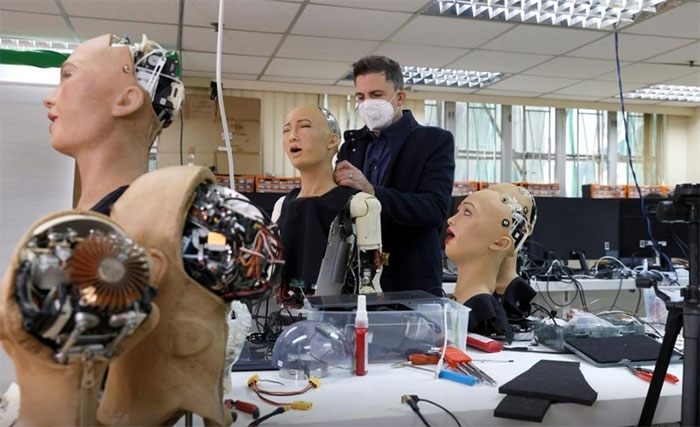
Many people still worry about assigning robots tasks like nursing. (Photo: Hanson Robotics)
Sophia mentioned during her visit to her laboratory in Hong Kong: “Social robots like me can care for the sick or the elderly. I can help with communication, provide therapy, and promote social interaction, even in difficult situations.”
Hanson believes that robotic solutions for the pandemic are not limited to healthcare but can also assist customers in sectors such as retail and aviation.
Nevertheless, many people still express concern about assigning robots tasks like nursing. When asked if humans should fear robots, Sophia replied: “Someone once said, ‘We should fear nothing but fear itself.’





















































